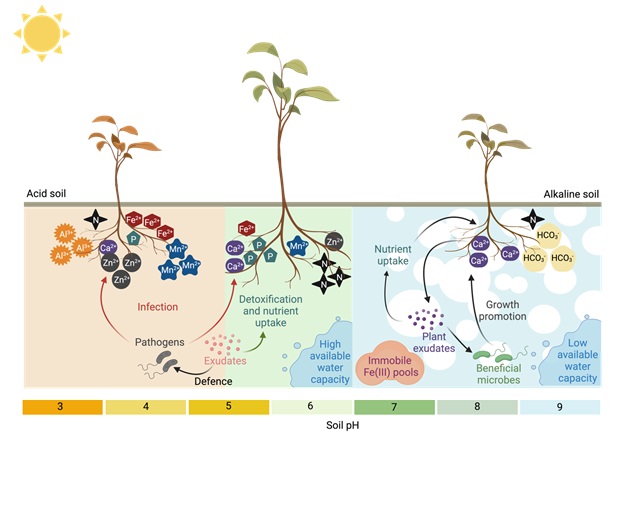[Wolfgang Schmidt] Iron acquisition from calcareous soils: mission impossible?
POST:The ability to thrive in calcareous soils, referred to as calcicole behaviour, is the readout of an amalgam of traits of which efficient foraging of iron from recalcitrant pools is a decisive factor. Secretion of a tailor-made cocktail of metabolites into the rhizosphere, the composition of which is responsive to a suite of edaphic and internal cues, allows survival in calcareous soils through a competitive Fe acquisition strategy, which includes intricate interactions with the consortium of associated microorganisms in, on, and around the roots. This multi-faceted, reciprocal plant-microbiome interplay affects iron mobilisation directly, but also collaterally by impacting growth, fitness, and health of the host. As part of the Marschner Reviews series featured by the journal Plant & Soil to acknowledge the enormous contribution Horst Marschner has made to the interface of plant and soil sciences, Isabel Vélez-Bermúdez and Wolfgang Schmidt summarize the mechanisms and the remarkably complex regulation of iron acquisition in plants, taking into consideration the specific constraints associated with the uptake of iron from alkaline soils. Knowledge on how plants extract iron from alkaline soils sets the stage for a better understanding of essential ecological processes and for combatting iron malnutrition in humans.
Journal: Plant & Soil
Authors: Isabel Vélez-Bermúdez and Wolfgang Schmidt
